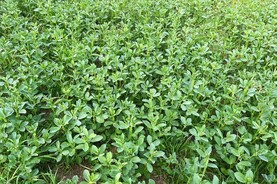Let me say at the outset, I broadly welcome the settlement agreed between Minister for Agriculture Charlie McConalogue, the IFA and Irish Grain Growers Group – that’s why we need these farmer organisations.
Nonetheless, it was cleverly engineered by the minister to play down his U-turn in restoring the Straw Incorporation Measure (SIM), and yet providing a cash incentive to bale. But I don’t intend to let the minister off scot-free. His plan to suspend the valued SIM for this year was ill-judged and wrong. I’d never trust any politician and clearly, he’s no different.
The SIM has no bearing whatsoever on an impending fodder crisis that the minister talks about. Does he think a few thousand acres of baled straw will save the country from a fodder famine?
Most of what is chopped is inferior straw, like oilseed rape, oaten and, to some degree, wheaten. You wouldn’t feed it to a goat – not even a Donegal one.
The minister would do well to consider why there could be a fodder crisis and Teagasc might help him, as it was its policy (and so Government’s) to push milk production to its absolute limit from an acre of grass. Consequently, we have many dairy farmers who are so close to the stops, they can’t build fodder reserves in the years of plenty.
Despite the experts telling us it’s climate change, it isn’t. There has always been good years and bad years and this happens to be one. I would also suggest to the minister he stops wasting his time looking for a derogation for dairy herds in excess of 300 cows.
Everyone knows – even the dogs know – if you let 300 or 400 cows into a perfectly drained paddock on a wet day, there is water pollution. Period. It’s time for the minister to deal with the elephant in the room and back off tillage farmers. We certainly don’t see ourselves as saviours for the dairy sector.
Tillage farmers are already in a bad place, without throttling us further. Land competition from both non-agricultural use and the dairy sector are pushing us out, grain prices are too low and costs too high. Last year was tough and this one doesn’t look any better. Fair trade is the buzzword for producers of tea and coffee and other commodities. Yet there’s nothing fair about prices for Irish-grown grain and beans. These products are surely worth a premium over imported commodities grown with production systems that are banned in the EU.
I’ve a grain store half-full with last year’s wheat because I can’t get a fair price. And yet the feed mills are hammering out stuff 24/7, full of imported soya, maize, fillers and grain. The minister has taken a mean swipe at the industry when it’s down. If he was an Olympic boxer, he’d be sent home to Donegal for hitting below the belt. It could happen yet.
Harvest season
We are now in the season when the weather forecast is scrutinised for sun and wind, and the rise and fall of the dew is monitored as closely as a life-support machine. But the ladies in our lives are also shrewd observers of the same, using the washing line as a parameter.
I’m in for the essential 10 o’clock tea and Mrs P breezes into the kitchen.
“The washing’s dry,” she pronounces, as I lift my head out of Classic and Sport Car. I’m not convinced it could be, but it merits attention.
“What sort of washing,” I question. “Is it just knickers, or heavy stuff like my Wrangler Texas 821s?”
“All of them,” Mrs P cooly replies, “and Billy’s blanket.”
I’m out the door quicker than Usain Bolt and 20 minutes later I’m combining oats.






 This is a subscriber-only article
This is a subscriber-only article










SHARING OPTIONS: